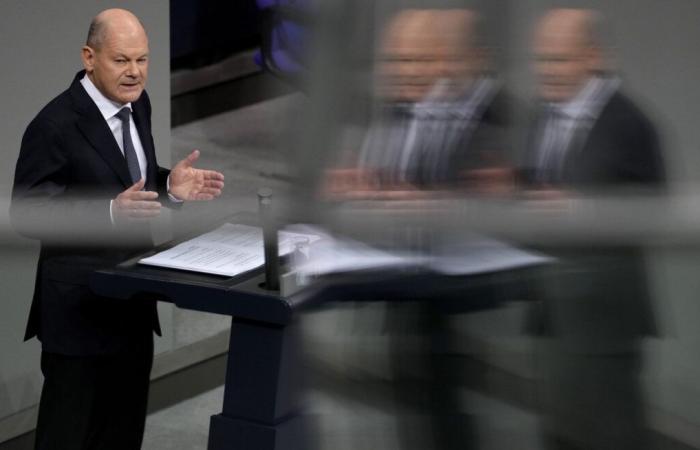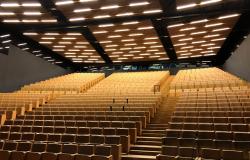Fake news sites, defamatory articles, cyberattacks: Germany in the electoral campaign fears an increase in interference operations attributed to Russia to influence its legislative vote.
In recent months, Russia has already been accused of possible interference in elections in Moldova, Georgia and Romania.
Berlin has set up a specific working group responsible for “taking the necessary protective measures” against disinformation, espionage and sabotage aimed at the February 23 elections, announced Interior Minister Nancy Faeser.
“Targeted lies and defamation are among the instruments used by Putin’s propaganda apparatus,” the minister stressed in an interview with the Süddeutsche Zeitung (SZ).
If the center-left government of Chancellor Olaf Scholz has promised to help Ukraine “as long as necessary”, the far-right AfD party and the radical left BSW are opposed to sending weapons to kyiv and plead to negotiate peace with Russia.
Their message resonates with part of the population and Russia has an interest in amplifying it, experts believe.
This is the way in which Russia participates “in the process of forming political opinion,” said the head of the German intelligence services, Bruno Kahl, in November.
Stirring up divisions
Moscow is exploiting issues that divide German society, such as the COVID-19 crisis, climate change or economic difficulties, he noted.
“All these conflicts are analyzed in Moscow and used as triggers of influence in order to stir up divisions,” according to Mr. Kahl.
In September, several German media outlets claimed that an agency linked to the Russian government was carrying out a disinformation campaign intended to scare voters in order to weaken support for Ukraine and boost the popularity of the AfD.
With the help of memes on the Internet and caricatures on Facebook, X, Telegram and Instagram, this agency, called Social Design Agency (SDA), had been spreading false information for at least two years, according to the investigation.
The campaign was “directly controlled by the Kremlin,” say Süddeutsche Zeitung media and public broadcasters WDR and NDR, citing internal documents from a Moscow-based company.
The SDA is also suspected of being involved in the long-term campaign called “Doppelgänger” (lookalike in German), spotted as early as 2022, where false articles imitating the style and layout of major media, generally Western, broadcast pro-Russian stories. Reputable German media outlets were targeted.
Manipulation via l’IA
Germany has also seen a rise in claims spread online to undermine confidence in the voting process itself.
During June’s European elections, the AFP verification unit investigated a claim that a small hole in the corners of ballot papers rendered them invalid. In reality, this hole is used to help blind people to vote.
One of the messages on the subject, viewed thousands of times on Telegram, came from a channel which regularly relays pro-Kremlin messages.
Many suspicious articles on the Internet concern climate change and target the German Green Party. The leader of the Greens in the February elections is the Minister of Economy and Vice-Chancellor of the Scholz government, Robert Habeck.
The latter found himself at the center of a defamatory campaign shortly after announcing his candidacy for the chancellorship a few weeks ago.
Under the guise of an information platform, an online site accused him of sexual violence against a woman, based on a video probably manipulated using artificial intelligence.
“The secret services have not been able to positively identify the origin of the video, but suspicion lies with the Russian public authorities,” said Minister Nancy Faeser.
German authorities have also blamed Russia for several cyberattacks in recent years. One of them, started in 2022, targeted email addresses of officials of the SPD, the social democratic party of Olaf Scholz.
In November, the German Statistical Office said it had been the victim of a hack. Its director Ruth Brand is also a federal elections administrator. An article in the Swiss press, not confirmed by the authorities, attributed the attack to pro-Russian hackers.






